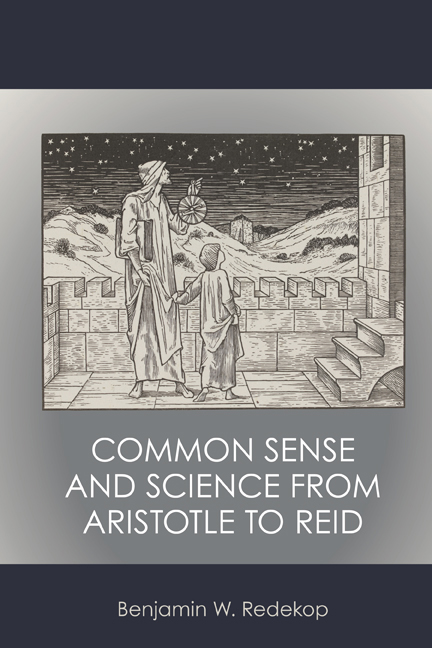Book contents
- Frontmatter
- Contents
- Acknowledgments
- Introduction
- 1 Common Sense and Scientific Thinking before Copernicus
- 2 The Challenge of Modern Science and Philosophy
- 3 Common Notions, Sens Commun: Herbert of Cherbury and Renè Descartes
- 4 Hobbes, Locke, and Innatist Responses to Skepticism and Materialism
- 5 Common Sense in Early Eighteenth-Century Thought
- 6 Common Sense and Moral Sense: Buffier, Hutcheson, and Butler
- 7 Common Sense and the Science of Man in Enlightenment Scotland: Turnbull and Kames
- 8 Common Sense, Science, and the Public Sphere: The Philosophy of Thomas Reid
- Epilogue
- Notes
- Index
5 - Common Sense in Early Eighteenth-Century Thought
Published online by Cambridge University Press: 07 November 2020
- Frontmatter
- Contents
- Acknowledgments
- Introduction
- 1 Common Sense and Scientific Thinking before Copernicus
- 2 The Challenge of Modern Science and Philosophy
- 3 Common Notions, Sens Commun: Herbert of Cherbury and Renè Descartes
- 4 Hobbes, Locke, and Innatist Responses to Skepticism and Materialism
- 5 Common Sense in Early Eighteenth-Century Thought
- 6 Common Sense and Moral Sense: Buffier, Hutcheson, and Butler
- 7 Common Sense and the Science of Man in Enlightenment Scotland: Turnbull and Kames
- 8 Common Sense, Science, and the Public Sphere: The Philosophy of Thomas Reid
- Epilogue
- Notes
- Index
Summary
The traditional narrative of modern philosophy emphasizes the triumph, over the course of the eighteenth century, of Lockean empiricism over various forms of rationalism. But thinking in terms of a dichotomy between “rationalism” and “empiricism” obscures more than it clarifies. While it is true that thinkers following in the wake of Locke's Essay were forced to take the role of sense experience much more seriously than before, a salient feature of eighteenth-century philosophy was its exploration of just how the mind is able to gain understanding from experience. And this exploration often led philosophers to sharpen and refine innatist arguments, rather than reject them entirely, as Locke had done. Locke's attack on innatism thus helped to stimulate the emergence of a mature philosophy of common sense.
Although the term “common sense” had occasionally appeared in seventeenth-century philosophical discourse, it tended to be invoked in a rhetorical manner, as when Robert Ferguson stated that the first heretics of the Christian Church “overthrew common sense, and did violence to the Universal Uniform and perpetual Light of Mankind” or when John Ray said that the common sense of mankind tells them that animals suffer. But already in such appeals, the term functioned as a synonym for practical reason or commonly held principles or truths. During the eighteenth century, as “common sense” began to be widely used in the service of a growing egalitarian and democratic mindset, thinkers started to accord it more philosophical weight and substance. It was becoming increasingly important to reconcile elite knowledge with common understanding, particularly as middling classes assumed ever greater prominence in cultural and political life, and thus it should come as no surprise that the term assumed a new role in the vocabulary of philosophers during the eighteenth century.
Locke's Essay received many critical responses after its publication in 1689, and his rejection of innate principles was a central point of contention. As Yolton states, many people “found Locke's rejection of innate ideas, his treatment of conscience, and his dissociation of the law of nature from the inward principles commonly supposed to be inherent in man dangerously challenging to the established morality and to revealed religion.”
- Type
- Chapter
- Information
- Common Sense and Science from Aristotle to Reid , pp. 61 - 76Publisher: Anthem PressPrint publication year: 2020



